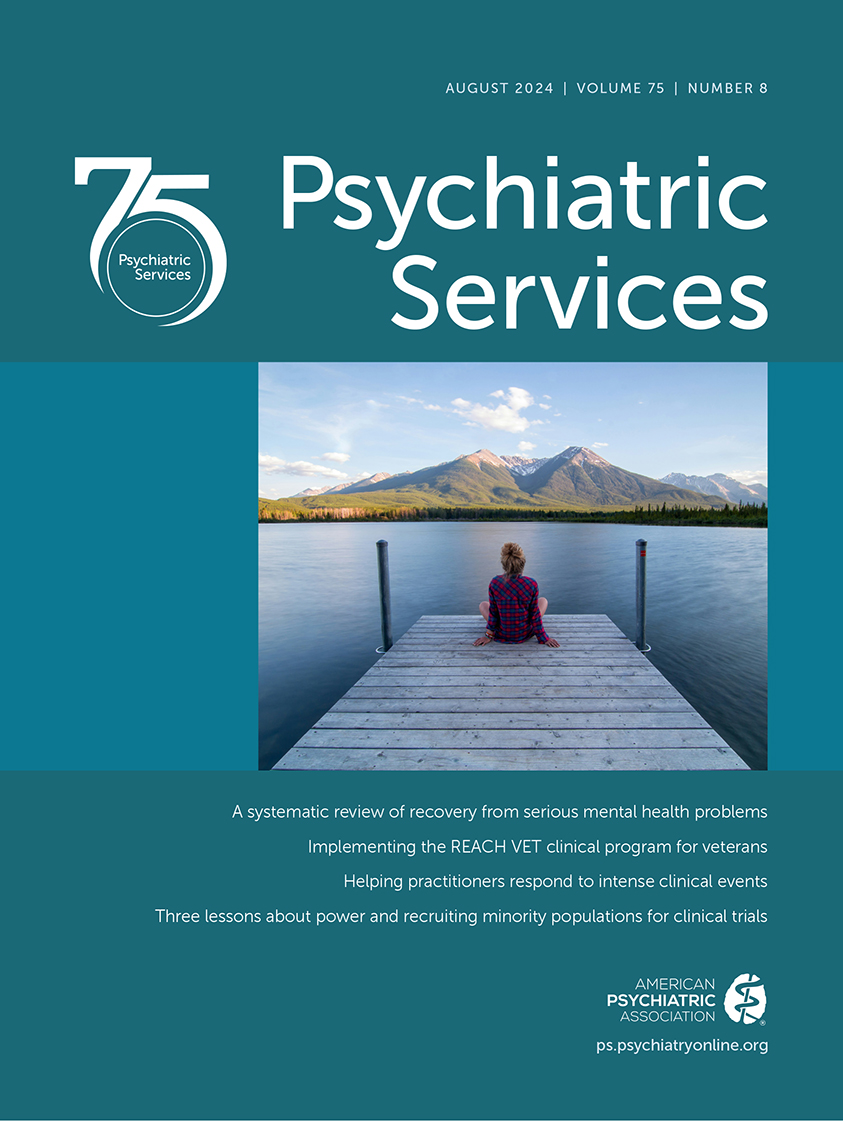Supporting patients’ continuity of treatment in the community after release from custody is an essential component of health care in jails and prisons. With the high rates of mental illness and substance use disorders in the incarcerated population, individuals often have extensive mental health needs on release. Services geared toward improving treatment engagement in the community, typically referred to as reentry services, include linking patients to outpatient treatment providers in their communities, prescribing psychotropic medication, facilitating access to community-based treatment programs or supportive housing, and coordinating insurance coverage. Many of these tasks are impossible for individuals in custody to accomplish themselves, necessitating services from mental health and other providers.
Research has demonstrated that the provision of reentry services in prison can increase patients’ engagement with mental health and general medical services and help with health insurance coverage after release. Data about the impact of reentry services in jails are more limited, most likely because jails are typically smaller, have fewer resources, and admit and release inmates unpredictably. Despite these limitations, some evidence is available and indicates that participation in reentry programming in jail may delay time to rearrest and that failure to engage in treatment in the community is associated with rearrest of patients with co-occurring mental and substance use disorders.
In their study, Kern and colleagues (
1) assessed 1-year postrelease mental health treatment engagement of over 1,200 individuals with Medicaid who screened positive for serious mental illness in 10 jails in Michigan. On the basis of research suggesting that for-profit providers are less likely to identify individuals with serious mental illness and provide them services in jail, the authors hypothesized that patients receiving care from for-profit providers would be less likely to engage in treatment postrelease. Of the jails studied, three used for-profit companies to provide mental health services and seven did not. Serious mental illness was identified with the K6 instrument or standard jail practices, although the standard practices used were not specified. Notably, postrelease community treatment engagement was identified by using Medicaid claims with an associated psychiatric diagnosis code; such utilization could reflect standard outpatient services or less desirable outcomes such as emergency hold placement or inpatient psychiatric hospitalization. In this context, whether more engagement is better is not clear.
Several findings are notable. Overall, only about one-third of individuals engaged in treatment postrelease, a disconcerting finding. Further, inmates who engaged in treatment postrelease were more likely to be older, female, and booked into an urban jail and to have received mental health services before and during their jail stay. Controlling for demographic characteristics and behavioral history, a logistic regression demonstrated that incarceration at a jail with a for-profit mental health provider resulted in less postrelease treatment engagement (adjusted odds ratio of 0.59).
An examination of the availability, breadth, and quality of reentry services offered at the 10 institutions studied would have been helpful. Some jail mental health service providers may offer little, if any, reentry services, whereas others may actively monitor inmates’ projected release dates and deliver a breadth of services around the time of release. Counties with limited resources may struggle to provide reentry services because of deficient staffing and community supports. For mental health providers that offer reentry services, the scope and quality of services and the staffing of the reentry division will likely have an impact on whether a patient engages in treatment postrelease.
Given the heterogeneity of mental health service providers and models of care in jails in the United States, it is difficult to know what factors are most relevant to increase patients’ likelihood of successfully engaging in treatment postrelease. Future research should examine the impact of specific reentry services on bridging care to the community and their relationship to positive treatment outcomes, such as continued outpatient care and psychiatric stability, as well as negative outcomes, such as psychiatric decompensation, inpatient hospitalization, and utilization of emergency services.

